
President Yoon Suk-yeol has pledged reforms following the opposition parties' victory in the National Assembly elections, with the Democratic Party securing 175 seats and the ruling People Power Party winning 109 seats. Voter turnout was at a record high of 67%. Top aides, including Prime Minister Han Duck-soo and PPP leader Han Dong-hoon, resigned after the election results. Yoon's administration faced low approval ratings due to unmet policy promises, price increases, and corruption scandals. The election outcome is seen as a mid-term confidence vote on Yoon's leadership.

South Koreans are voting in a major political test for conservative President Yoon Suk-yeol who faces low approval ratings due to issues like a doctors' strike, rising food prices, and corruption allegations. The election will determine the composition of the 300-member parliament, setting the tone for domestic politics in the next four years. A poor performance by Yoon's People Power Party could weaken his final three years in office as South Korean presidents serve a single term. The election's outcome is unlikely to significantly influence the country's foreign policy.

South Korea is conducting parliamentary elections seen as a reflection of public dissatisfaction with President Yoon Suk-yeol's leadership due to issues like the cost of living and corruption. The ruling conservative People Power Party (PPP) faces challenges from the opposition Democratic Party (DP) and a liberal splinter party. President Yoon's struggles with economic issues, inflation, and scandals have impacted his popularity. The election outcome could lead to a potential political deadlock in South Korea for the next three years. Voters are prioritizing economic concerns over foreign policy achievements.

South Koreans are voting in a hotly contested parliamentary election that is viewed as a referendum on conservative President Yoon Suk Yeol, with pre-election surveys indicating a likelihood of the liberal opposition parties maintaining dominance in the National Assembly; the election could determine Yoon's effectiveness in governing for the remaining three years of his term.

Yoon Suk Yeol (Korean: 윤석열; born 18 December 1960) is a South Korean politician who is the 13th (20th election) and current president of South Korea since 2022. Prior to his presidency, he served as the prosecutor general of South Korea between 2019 and 2021.Born in Seoul, Yoon attended Seoul National University. In his capacity as the Chief of the Seoul Central District Prosecutor's Office, he played a key role in convicting former presidents Park Geun-hye and Lee Myung-bak for abuse of power. Yoon was appointed prosecutor general of South Korea by President Moon Jae-in in July 2019. During Yoon's leadership, the Supreme Prosecutor's Office conducted embattled investigations into Cho Kuk, an influential figure in President Moon's administration, that would lead to Cho's resignation. Yoon's clashes with the Moon administration until his resignation as prosecutor general in March 2021 led to his rise as a presidential candidate.In June 2021, Yoon announced his candidacy in the 2022 South Korean presidential election. He joined the right-wing People Power Party (PPP) in July, and won the PPP nomination in November. Considered conservative and economically liberal, Yoon ran on a platform promising economic deregulation and other measures such as abolishing the Ministry of Gender Equality and Family. Yoon narrowly defeated Democratic Party nominee Lee Jae-myung on 9 March 2022 and assumed office as president on 10 May 2022.

The president of the Republic of Korea (Korean: 대한민국 대통령; RR: Daehanmin-guk daetongnyeong), also known as the president of South Korea (Korean: 대통령), is the head of state and head of government of the Republic of Korea. The president leads the State Council, and is the chief of the executive branch of the national government as well as the commander-in-chief of the Republic of Korea Armed Forces.The Constitution and the amended Presidential Election Act of 1987 provide for election of the president by direct, secret ballot, ending sixteen years of indirect presidential elections under the preceding two authoritarian governments. The president is directly elected to a five-year term, with no possibility of re-election. If a presidential vacancy should occur, a successor must be elected within sixty days, during which time presidential duties are to be performed by the prime minister or other senior cabinet members in the order of priority as determined by law. The president is exempt from criminal liability (except for insurrection or treason).The current president, Yoon Suk Yeol, a former prosecutor general and member of the conservative People Power Party, assumed office on 10 May 2022, after defeating the Democratic Party's nominee Lee Jae-myung with a narrow 48.5% plurality in the 2022 South Korean presidential election.

Legislative elections are being held in South Korea on 10 April 2024.

SEOUL Outnumbered by older voters, underrepresented in parliament, ignored on the campaign trail: South Korea's young say the political system is failing them, and some are fighting back before Wednesday's election. The poll to choose the National Assembly's 300 lawmakers will be the first vote in South Korean history, where voters aged 60 and older will outnumber those in both their 20s and 30s, official data showed. This is partly demographics. South Korea has the world's lowest birthrate and is a rapidly aging society, with the number of marriages in free fall for decades and single-person households now the norm. Politics is also dominated by older men.

President Yoon Suk-yeol of South Korea remains resolute in his decision to raise medical school admissions by 2,000 places, citing the necessity to address staff shortages and the country's aging population. Striking doctors, accusing them of operating as a cartel, face risks of losing their licenses for the ongoing protests. Yoon urges doctors to present alternative plans with scientific evidence and encourages a return to work to avoid license suspensions.

Shehbaz Sharif secured 201 votes in the National Assembly, defeating opponent Omar Ayub, despite protests of rigging by imprisoned ex-PM Imran Khan's party. Following a shaky coalition formation after the Feb. 8 election, Sharif's Pakistan Muslim League and allies took power. Khan's supporters, despite obstacles like social media shutdowns, used innovative methods to campaign. Imran Khan, now in opposition, has a history of clashes with the military establishment and a chaotic political career. The new government faces economic challenges and reluctance to govern amidst a debt crisis and inflation.

The prime minister of the Republic of Korea (Korean: 국무총리; Hanja: 國務總理) is the deputy head of government and the second highest political office of South Korea who is appointed by the President of the Republic of Korea, with the National Assembly's approval. The prime minister may be a member of the National Assembly, but this is not required to hold the office. The prime minister of South Korea is not the head of government of South Korea, for the President is both the head of state and government in the country.The current prime minister is Han Duck-soo, having taken office on 20 May 2022.

Pakistan's National Assembly swore in newly elected members of parliament amidst chaos as allies of imprisoned former Prime Minister Imran Khan protested against the alleged rigged election. Shehbaz Sharif is expected to form the next government, facing only one rival in the upcoming prime minister election. The new government will inherit challenges such as militant attacks, energy shortages, and an ailing economy requiring another IMF bailout. The election saw Sharif's party and the Pakistan Peoples Party emerge as major players in the parliament.

This page provides the list of members – incumbent and nominated – of the State Council of South Korean President Yoon Suk Yeol.

The People Power Party (Korean: 국민의힘; lit. Power of Nationals; PPP), formerly known as the United Future Party (미래통합당; UFP), is a conservative and right-wing political party in South Korea. It controls the South Korean presidency and is the second largest party in the National Assembly. The PPP, along with its historic rival, the Democratic Party, make up the two largest political parties in South Korea.The UFP was formed on 17 February 2020 through the merger of the Liberty Korea Party, New Conservative Party, and Onward for Future 4.0, as well as several minor parties and political organisations. The party changed its name to the PPP on 31 August 2020.

Han Dong-hoon (Korean: 한동훈; Hanja: 韓東勳; born 9 April 1973) is the 69th Minister of Justice of the Republic of Korea, serving in the administration of President Yoon Suk Yeol. Han previously served as a junior anti-corruption prosecutor and played a leading role in multiple high-profile cases, including those involving Samsung executive Lee Jae-yong, former Presidents Park Geun-hye and Lee Myung-bak, and family members of former Minister of Justice Cho Kuk. Considered a protégé and close associate of Yoon, Han served as a principal deputy when the president held senior positions in the Korean prosecution service.

Pakistan's National Assembly witnessed chaos as newly elected members were sworn in amidst protests by allies of jailed former Premier Imran Khan, accusing the election of being rigged. Shehbaz Sharif, likely to form the government, entered parliament with his brother Nawaz Sharif, both former premiers. The new government faces challenges of increased militant attacks, energy shortages, and a struggling economy necessitating another IMF bailout. Khan's party continues to campaign against the alleged rigging. International observers had mixed views on the election, with the U.S. State Department criticizing restrictions on freedoms.

Shahbaz Sharif, the joint candidate of an alliance led by Pakistan Muslim League-Nawaz (PML-N), won the election for the 24th prime minister of Pakistan by securing 201 votes out of 293 cast in the National Assembly's polling. His competitor Omar Ayub Khan obtained 92 votes. Sharif received support from various parties and allies in the 336-member National Assembly. This follows the general election held on February 8, 2024, where Sardar Ayaz Sadiq was elected as the speaker of the house.

The Democratic Party of Korea (Korean: 더불어민주당, lit. Together Democratic Party; DPK), formerly known as the New Politics Alliance for Democracy (Korean: 새정치민주연합, NPAD), is a centrist-liberal South Korean political party. The DPK and its rival, the People Power Party (PPP), form the two major political parties of South Korea.The NPAD was founded on 26 March 2014 out of a merger between the Democratic Party and the preparatory committee of the New Political Vision Party (NPVP) led by Ahn Cheol-soo. The party changed its name to the Democratic Party of Korea on 28 December 2015. In 2022, the Democratic Party, the Open Democratic Party, and New Wave merged to form a big tent party.

Shehbaz Sharif, 72, has been elected as Pakistan's prime minister for the second time after a controversial election marred by allegations of rigging. He secured 201 votes in the National Assembly, prevailing over rival Omar Ayub Khan. Sharif, the younger brother of former Prime Minister Nawaz Sharif, leads the Pakistan Muslim League-Nawaz party, in alliance with the Pakistan Peoples Party. Pakistan faces political instability, a declining economy, and security challenges amidst the ongoing developments.

The ruling Cambodian Peoples Party won 55 out of the 58 Senate seats in the election, with the National Election Committee confirming the results. The vote paves the way for Hun Sen to become Senate President, allowing him to hold an official position in government. The Senate, with 62 members, has mostly ceremonial duties but the Senate President serves as the active head of state when the king is absent. The election outcome was largely expected as the Cambodian Peoples Party dominates the National Assembly as well.

Han Duck-soo (Korean: 한덕수; born 18 June 1949) is a South Korean diplomat, economist, and politician serving as the current prime minister of South Korea since May 2022. Han is the fifth person to hold the office twice, having previously served as the 34th Prime Minister under President Roh Moo-hyun from 2007 to 2008. He also held office as ambassador to the United States from 2009 to 2012 and as Chairman of the Korea International Trade Association from 2012 to 2015.

South Korea's government is taking steps to suspend the medical licenses of nearly 9,000 junior doctors who have been on strike for two weeks, impacting hospital operations. The strike was in protest of the government's plan to increase medical school admissions by 2,000 students from the 2025 academic year. The doctors, representing a fraction of South Korea's 140,000 doctors, argue that the reform should address pay and working conditions first. The government, led by President Yoon Suk-yeol, is pushing the reforms despite opposition, leading to a standoff with the medical professionals.

The People Future Party (Korean: 국민의미래, romanized: Gugminuimirae, lit. 'Future of Nationals') is a satellite party of the People Power Party established on 23 February 2024 and registered on 27 February 2024 in order to run for party-list proportional representation in 2024 South Korean legislative election, similar to how the United Future Party formed the satellite Future Korea Party for the 2020 election.

Despite being jailed, Imran Khan's Pakistan Tehreek-e-Insaf (PTI) party-backed independent candidates had a strong showing in Pakistan's recent election, winning 100 of 265 contested lower-house seats. This result highlights Khan's enduring popularity among the country's registered voters, many of whom are struggling with high inflation. The performance of PTI-backed independents also reflects public disillusionment with traditional political parties like the Pakistan Muslim League-Nawaz and the Pakistan Peoples Party. While no party won a majority, Nawaz Sharif's party is considering forming an alliance with the PPP, a move that may be supported by the military.

The Peoples' Democratic Party (Turkish: Halkların Demokratik Partisi, acronymized as HDP; Kurdish: Partiya Demokratîk a Gelan), or Democratic Party of the Peoples, is a pro-Kurdish political party in Turkey. Generally left-wing, the party places a strong emphasis on participatory and radical democracy, feminism, minority rights, youth rights, and egalitarianism. It is an associate member of the Party of European Socialists (PES), a consultative member of the Socialist International, and a party within the Progressive Alliance (PA).Aspiring to fundamentally challenge the existing Turkish–Kurdish divide and other existing parameters in Turkish politics, the HDP was founded in 2012 as the political wing of the Peoples' Democratic Congress, a union of numerous left-wing movements that had previously fielded candidates as independents to bypass the 10% election threshold. The HDP is in an alliance with the Kurdish Democratic Regions Party (DBP), often described as the HDP's fraternal party. From 2013 to 2015, the politicians of the DBP participated in peace negotiations between the Turkish government and the Kurdistan Workers' Party (PKK).The party operates a co-presidential system of leadership, with one chairman and one chairwoman. In the 2014 presidential election, the party put forward its chairman, Selahattin Demirtaş, who won 9.77% of the vote. Despite concerns that it could fall short of the 10% election threshold, the party put forward party-lists instead of running independent candidates in the subsequent June 2015 general election. Exceeding expectations, it polled at 13.12%, becoming the third largest parliamentary group. The party briefly participated in the interim election government formed by AKP Prime Minister Ahmet Davutoğlu on 28 August 2015, with HDP MPs Ali Haydar Konca and Müslüm Doğan becoming the Minister of European Union Affairs and the Minister of Development respectively. The party governs the municipalities in which they have won the elections in a co-mayoralty constituted by a woman and a man.Witnessing the 2016 Turkish coup attempt and pointing out previous repression of democratic forces by martial powers, the HDP strongly opposed the coup. The HDP was first ignored and left out of the post-coup national truce while the Turkish purges targeted alleged members of the Gülen movement. From September 2016, the Turkish judiciary started to submit HDP elected officials to anti-terrorism accusations. Several HDP parliamentarians have been imprisoned in November 2016 including the party co-chairs Selahattin Demirtaş, and Figen Yüksekdağ, widely disturbing the HDP's ability to communicate and be active on the political scene. In December 2020 HDP co-deputy head for local governments, Salim Kaplan said that "since 2016, 20,000 of our members have been taken into custody and more than 10,000 of our members and executives have been sent to jail", and 48 municipalities have been seized by the government. The ruling AKP accuses the HDP of having direct links with the PKK, and the party had been defending itself against prohibition in March 2021, until the case was dropped.

President Felix Tshisekedi of the Democratic Republic of Congo appoints Judith Suminwa as the country's first-ever female prime minister, succeeding Jean-Michel Sama Lukonde, after his re-election. Suminwa, an economist, pledges to work towards peace and development in the country. Tshisekedi's victory with 73.47% of the vote in December led to a coalition formation in the National Assembly, allowing for the appointment of a prime minister. The new prime minister's priorities include employment, youth, women, and national cohesion in a nation of about 100 million people.

In Kuwait, the first elections under new Emir Sheikh Mishal al-Ahmad Al Sabah are taking place with around 835,000 eligible voters out of a population of 4.2 million. The elections come amidst political gridlock between the National Assembly and the ruling family, with concerns of low voter turnout. The emir dissolved parliament in February due to constitutional violations and warned against boycotting. The parliament has significant influence, challenging the executive branch. Kuwait faces challenges including decay in social services and stalled investments despite its vast oil reserves.

The Liberal Democratic Party (自由民主党, Jiyū-Minshutō), frequently abbreviated to LDP or Jimintō (自民党), is a major conservative and Japanese nationalist political party in Japan.The LDP was formed in 1955 as a merger of two conservative parties: the Liberal Party and the Japan Democratic Party. Since its foundation, the LDP has been in power almost continuously—a period called the 1955 System—except between 1993 and 1994, and again from 2009 to 2012. From 1955 to 2009, the LDP oversaw Japan's recovery from World War II, the country's economic miracle and its subsequent stagnation. After a brief interregnum, the LDP regained control of the government in a landslide victory at the 2012 election. After the 2021 and 2022 elections it holds 261 seats in the House of Representatives and 119 seats in the House of Councillors, and in coalition with Komeito since 1999, a governing majority in both houses.The LDP is often described as a big tent, but also as right-wing and conservative. While lacking a cohesive political ideology, the party's platform has historically supported increased defense spending and maintaining close military ties with the United States. The party's history and internal composition have been characterized by intense factionalism ever since its emergence in 1955, with its parliamentary members currently split among six factions, each of which vies for influence in the party and the government. The incumbent prime minister and party president is Fumio Kishida.

The 2024 South Korean doctors' strike is an ongoing strike in South Korea which began on February 20, 2024 when doctors in South Korea expressed dissatisfaction with the announcement of new government policies on significantly increasing the medical student quotas going forward. Thousands of doctors have since resigned or refused to work, which has resulted in patients being unable to receive timely treatment at the hospitals, with at least one death attributed to the labor action.
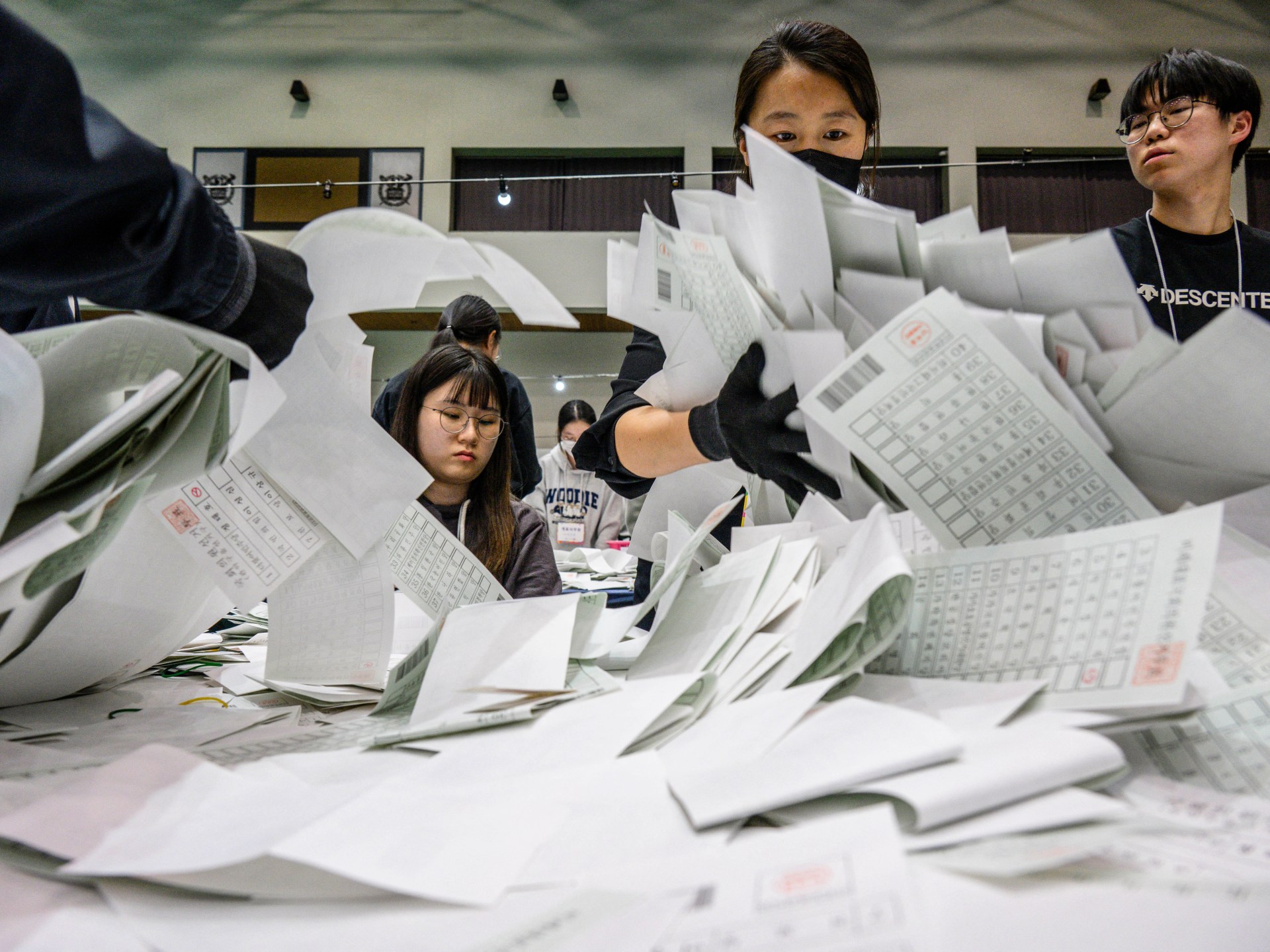
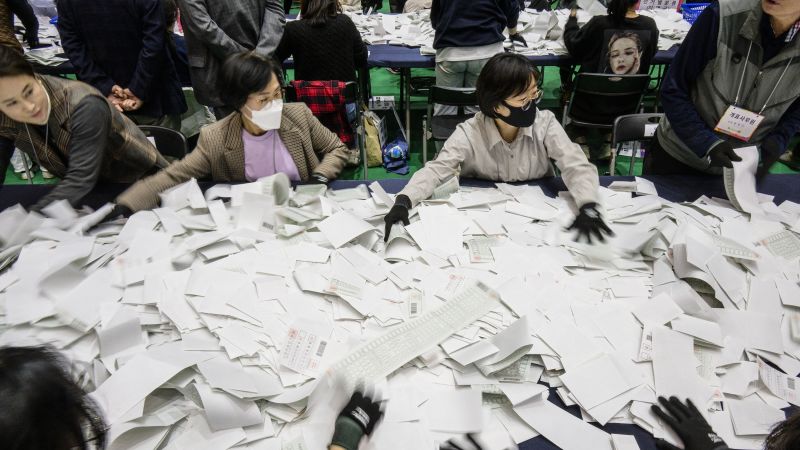
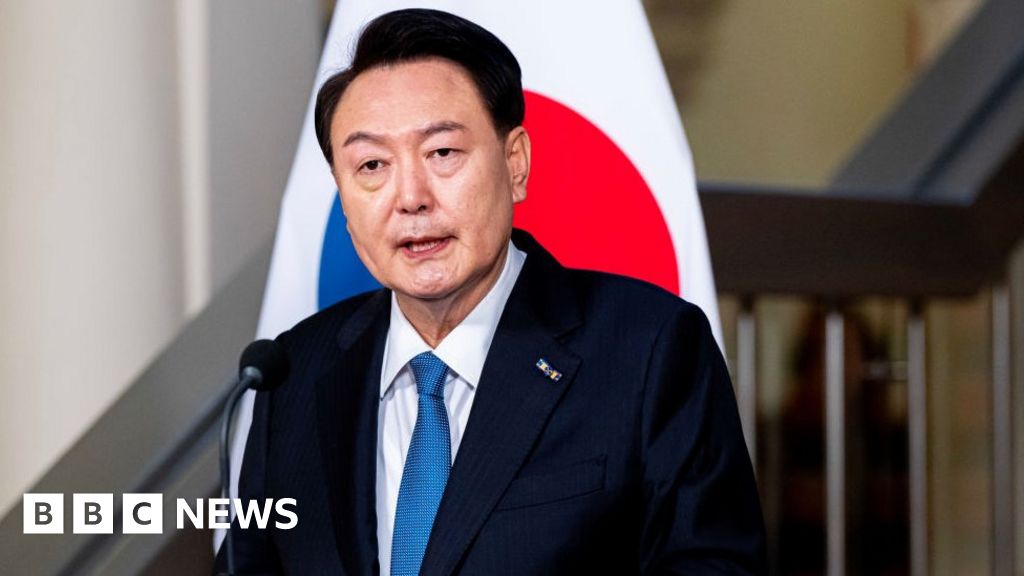
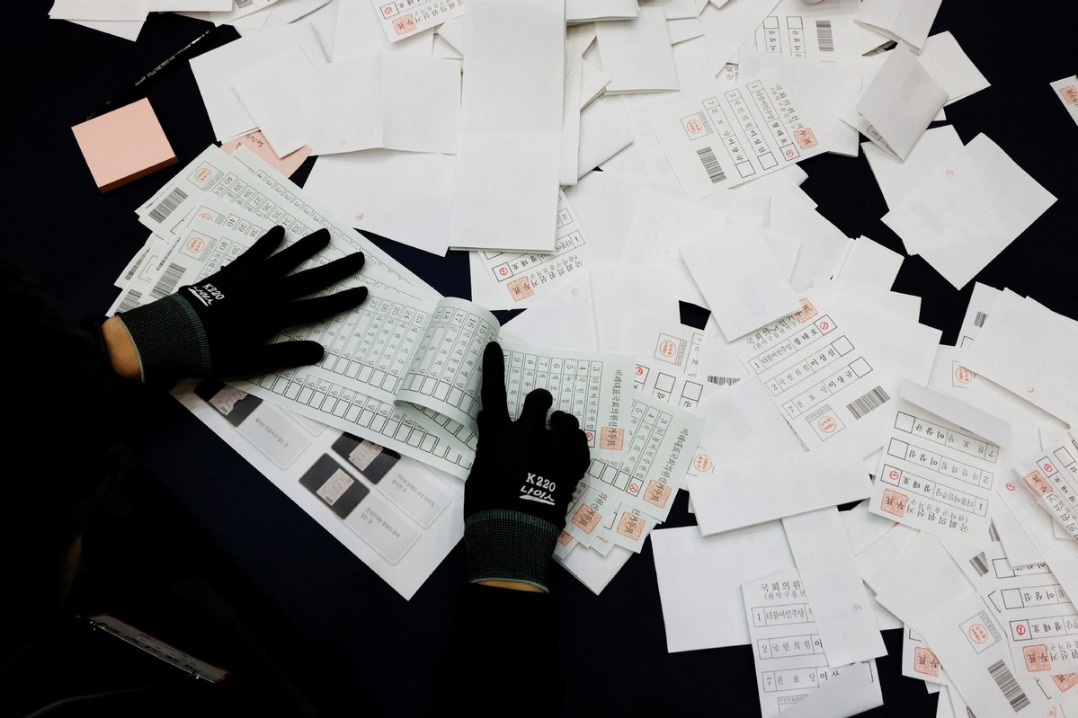


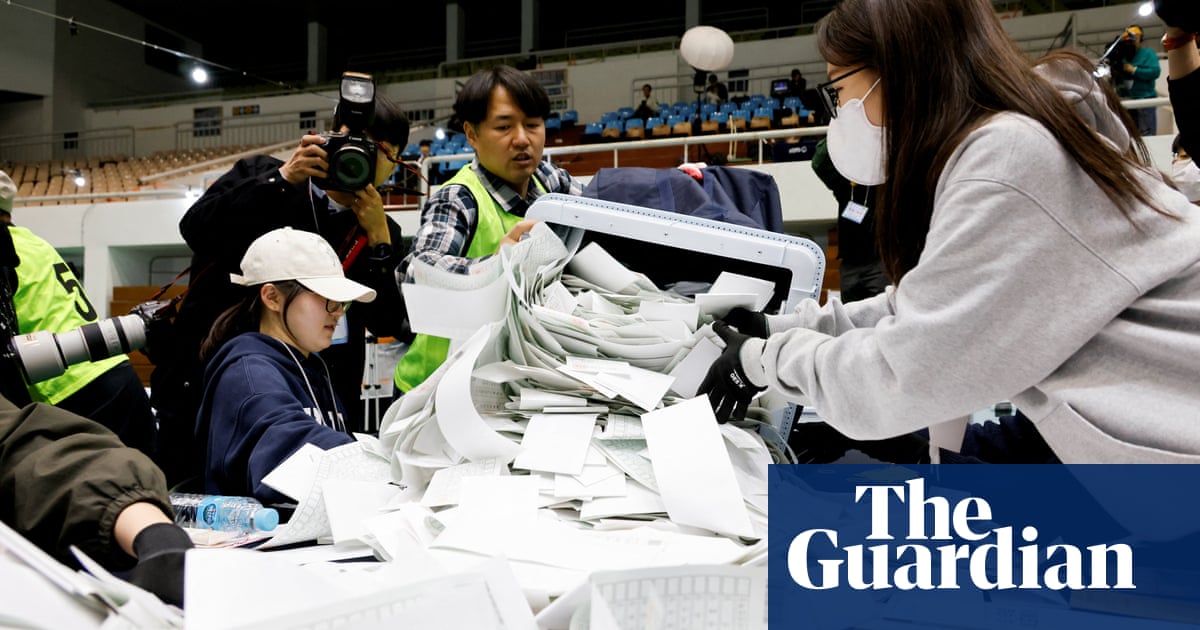

https://www.theguardian.com/profile/justinmccurry

ABC News

Yahoo! News

杜娟

https://apnews.com/author/hyung-jin-kim

https://www.facebook.com/bbcnews

Heather Chen

Al Jazeera

PANORA

PANORA

PANORA

Wikipedia

Wikipedia

Wikipedia

PANORA

PANORA

PANORA

Wikipedia

PANORA

Wikipedia

Wikipedia

Wikipedia

PANORA

PANORA

Wikipedia

PANORA

PANORA

Wikipedia

PANORA

Wikipedia

PANORA

Wikipedia

PANORA

PANORA

Wikipedia

Wikipedia